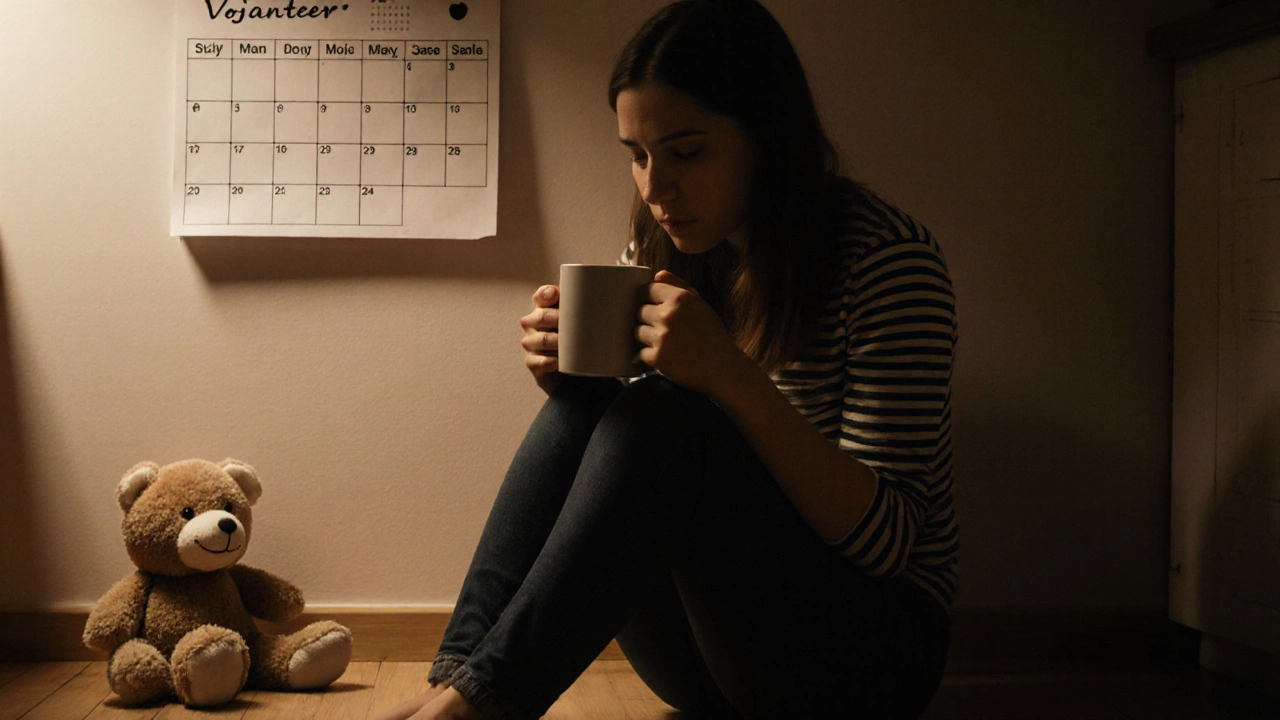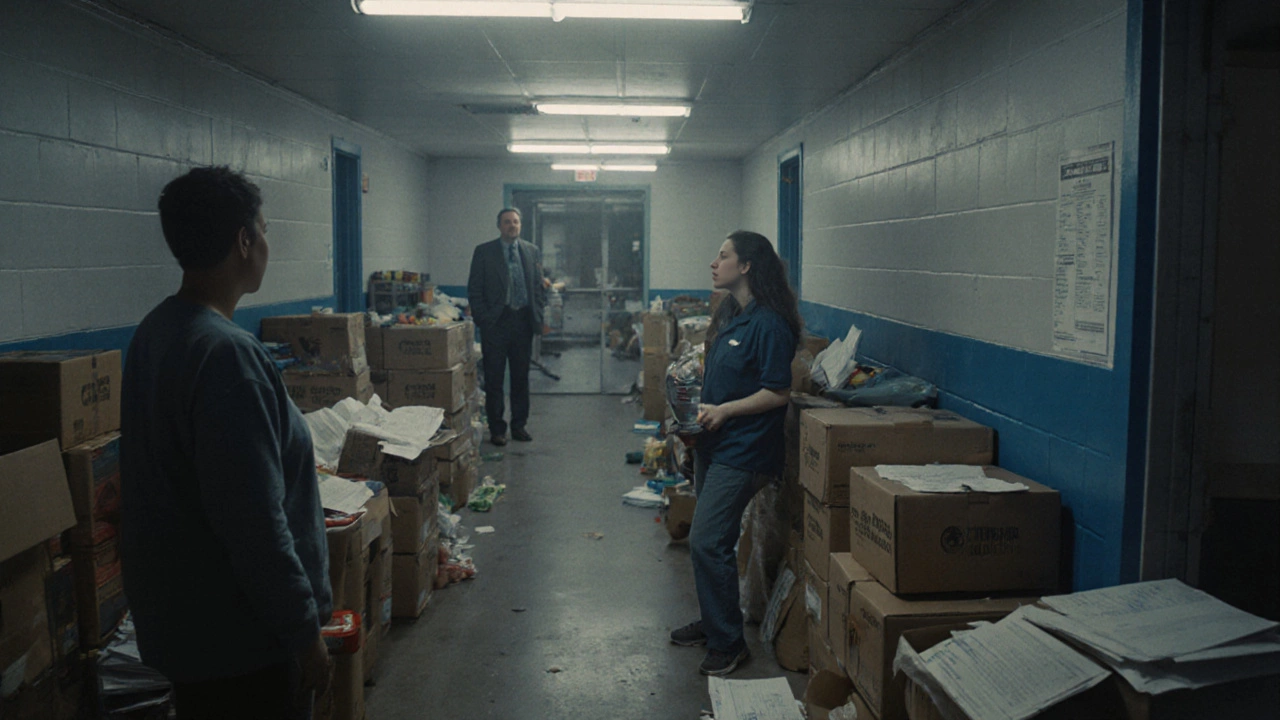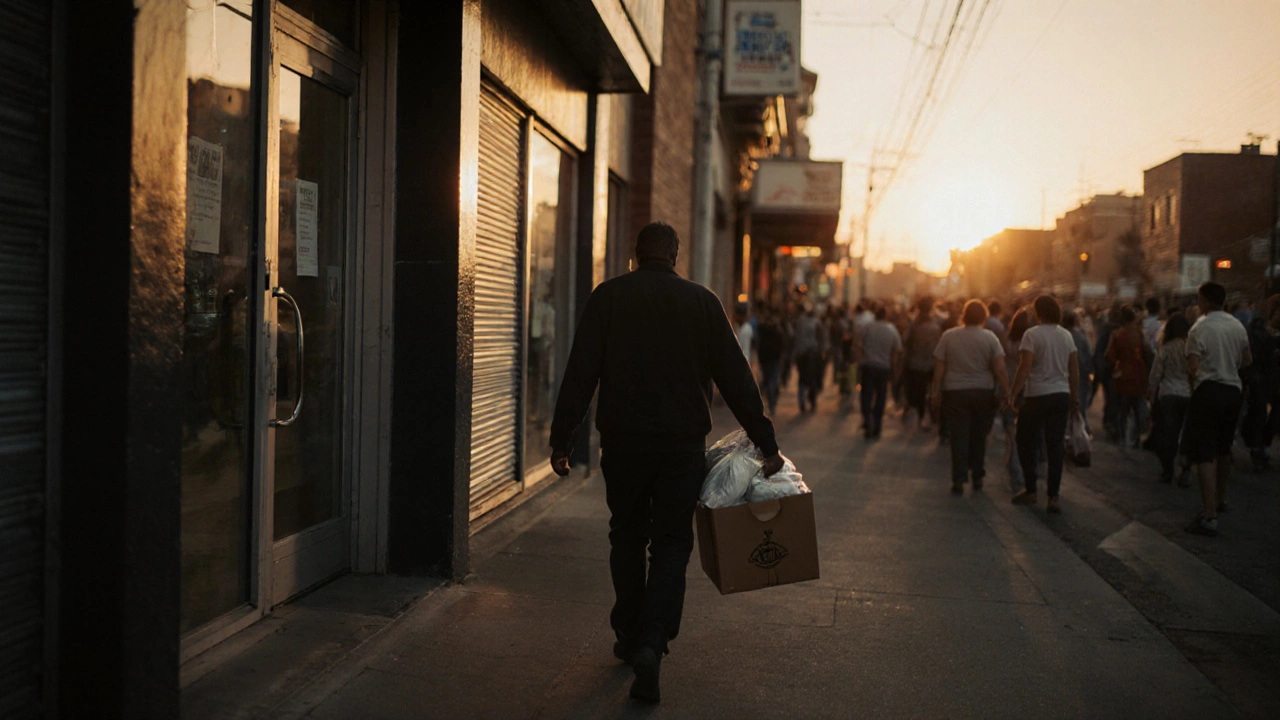What Are the Negatives of Volunteering? Real Challenges You Might Not Expect
 Nov, 6 2025
Nov, 6 2025
Volunteer Burnout Risk Assessment
This assessment helps you understand your risk of burnout from volunteer work. Answer the questions honestly to get personalized insights about your well-being and sustainable volunteering.
Note: This is not a medical diagnosis. If you're experiencing severe symptoms, please consult a professional.
Question 1: How many hours per week do you typically commit to volunteering?
Question 2: Do you receive adequate training for your volunteer role?
Question 3: How do you feel about your volunteer commitments?
Question 4: How often do you feel overwhelmed by your volunteer work?
Question 5: Do you have support from the organization when you need it?
Volunteering feels good. You give your time, help people, and walk away with that warm fuzzy feeling. But here’s the truth no one talks about: volunteering isn’t always sunshine and gratitude. For every story of someone changing a life, there’s another person who walked away exhausted, undervalued, or even worse off than when they started.
It’s Not Always Free Time
People think volunteering means showing up for an hour a week and calling it a day. But real volunteer work often demands more than you plan for. You sign up to sort food at a pantry, and suddenly you’re managing a team, filling out paperwork, or staying late because no one else showed up. What started as a two-hour commitment turns into five. And if you’re juggling a job, kids, or school, that extra time doesn’t come from nowhere-it’s stolen from sleep, meals, or family moments.One mother in Melbourne told me she volunteered at a youth center every Thursday. She loved it-until her daughter got sick one week, and she had to miss. The coordinator didn’t say anything, but the silence said it all. That guilt? It’s real. Volunteering starts to feel like another job you can’t quit.
Burnout Is Common, But Rarely Acknowledged
Burnout doesn’t just happen in corporate offices. It happens in food banks, animal shelters, and after-school programs too. Volunteers often carry emotional weight without support. You see kids going hungry. You hear stories of abuse. You watch people slip through the cracks. And then you go home and try to sleep.A 2024 study by the Australian Institute of Family Studies found that 38% of long-term volunteers reported symptoms of emotional exhaustion-higher than the rate among part-time paid workers. Why? Because volunteers rarely get breaks, feedback, or mental health resources. You’re expected to be endlessly compassionate, but no one asks how you’re holding up.
You’re Often Treated Like a Temporary Fix
Organizations rely on volunteers to fill gaps left by underfunded staff. That’s not wrong-but it’s not fair either. Volunteers get handed tasks that should be done by trained professionals: counseling, crisis intervention, even medical triage. And when something goes wrong? The volunteer gets blamed. Not the organization that didn’t train them.I spoke with a man who volunteered at a homeless shelter for three years. He helped mediate fights, handed out blankets, and stayed overnight during winter storms. When the shelter got audited, the inspector pointed out he wasn’t certified in trauma response. The shelter didn’t provide training. They just expected him to figure it out. He quit after that.

It Can Hurt Your Finances
Volunteering doesn’t pay-but it can cost you. Transportation, uniforms, meals, even parking add up. If you’re driving 40 minutes each way to help at a community garden, that’s $15 a trip in fuel. Do that twice a week? That’s $120 a month. For someone on a tight budget, that’s not negligible.And if you’re unemployed or underemployed? Volunteering might look good on a resume-but it doesn’t pay the rent. Some people take on multiple volunteer roles hoping it’ll lead to a job. But without structured pathways or mentorship, it often just leads to more stress.
Not All Organizations Are Well-Run
You assume nonprofits are full of kind, organized people. Sometimes they are. But many are stretched thin, poorly managed, or run by volunteers who don’t know how to lead. You show up ready to help-and find no schedule, no supplies, no clear direction. One woman signed up to tutor kids in reading. She showed up for three weeks with lesson plans. Each time, the coordinator forgot to tell her which kids she’d be working with. No books. No desks. No support. She stopped going after a month.Some organizations treat volunteers like free labor. Others are just disorganized. Either way, you end up wasting your time-and your energy.
It Can Isolate You
Volunteering is supposed to connect you to people. But sometimes, it does the opposite. You spend your weekends helping others, but you stop seeing your own friends. Your partner complains you’re never home. Your kids ask why you’re always tired. You start to feel like your identity is tied to being useful-and that’s a dangerous place to be.A 2023 survey by Volunteering Victoria found that 27% of volunteers said their personal relationships suffered because of their commitments. That’s not just about time. It’s about emotional distance. When your world becomes all about helping strangers, you forget how to let people help you.

Some Places Don’t Want You
Here’s the uncomfortable truth: not every organization needs more volunteers. Some have strict policies. Others have insurance rules that block people over 65 or under 18. Some only accept people with specific qualifications. You show up with good intentions-and get turned away because you don’t have a police check, or you’re not part of a church group, or you’re not “the right fit.”It’s not always about skill. Sometimes it’s about control. Organizations fear losing authority. They don’t want untrained people making decisions. So they say no-not because you’re not helpful, but because they’re afraid.
It Doesn’t Solve the Problem
Volunteering feels meaningful because you’re doing something. But it rarely fixes the root cause. Feeding a hungry person once a week doesn’t fix poverty. Tutoring a child doesn’t fix broken schools. Cleaning up a beach doesn’t stop plastic pollution.When we celebrate volunteers as heroes, we let governments and corporations off the hook. We act like individual kindness can replace systemic change. And while your effort matters, it shouldn’t be the only solution. If you’re volunteering because you think it’s the answer-you’re setting yourself up for disappointment.
When It Stops Feeling Good
The biggest negative? When volunteering stops being something you want to do-and starts being something you feel you have to do. That’s when it stops helping you. And it stops helping others too.You don’t have to keep going just because you started. You don’t owe anyone your energy. If you’re drained, resentful, or just plain tired-it’s okay to walk away. No guilt. No explanation needed.
Real compassion isn’t about burning out. It’s about showing up sustainably. Sometimes that means saying no. Sometimes that means volunteering less. Sometimes that means finding a different way to help-one that doesn’t cost you your peace.
Is volunteering bad for mental health?
It can be-if you’re overcommitted, unsupported, or emotionally overwhelmed. Many volunteers experience burnout, guilt, or isolation, especially when they’re expected to handle trauma or crisis situations without training. Mental health risks rise when volunteering becomes a obligation instead of a choice.
Why do people quit volunteering?
People quit for many reasons: lack of appreciation, poor organization, emotional exhaustion, time conflicts, or feeling used as free labor. Some leave because they realize their efforts aren’t making a real difference. Others simply need to protect their own well-being.
Can volunteering hurt your career?
Not directly-but poorly managed volunteer roles can waste time that could go toward paid work or skill-building. If you’re volunteering in a disorganized environment with no structure, it won’t strengthen your resume. The value comes from clear roles, mentorship, and transferable skills-not just the number of hours logged.
What should I do if volunteering makes me feel guilty?
Guilt often comes from feeling like you should do more. But you can’t help others if you’re running on empty. Set boundaries. Say no. Choose one role that fits your life, not the other way around. Real giving doesn’t require self-sacrifice-it requires sustainability.
How do I find a healthy volunteer opportunity?
Look for organizations that offer training, clear expectations, and support. Ask: Do they provide orientation? Are volunteers thanked and recognized? Is there room to step back if needed? A good program treats you like a partner, not a replacement for staff.